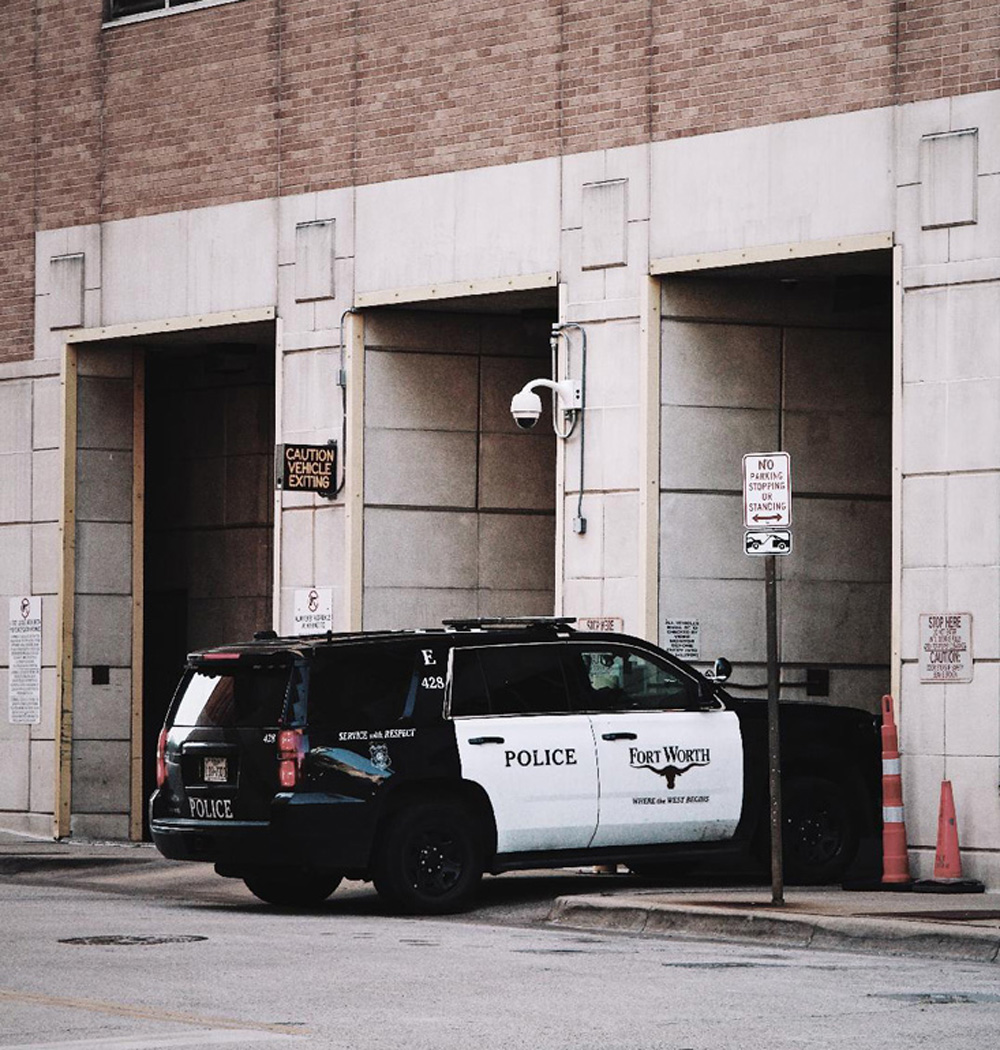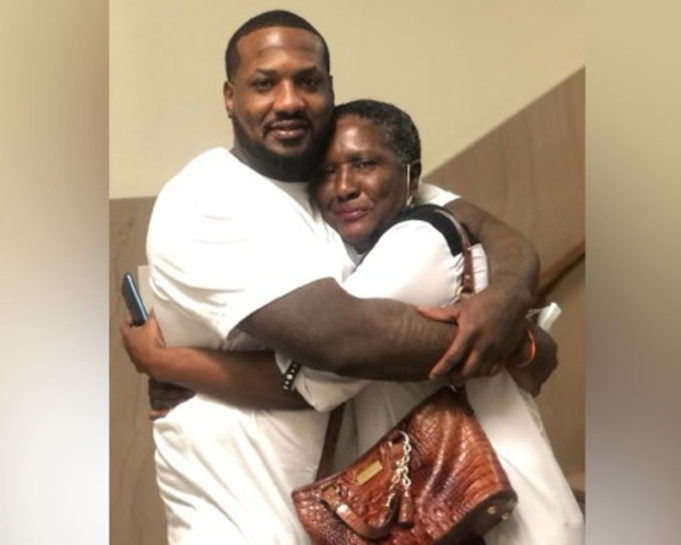A recent piece by the Dallas Morning News takes pointed aim at the Tarrant County Sheriff’s Department.
“Twenty-one people died in custody of the Tarrant County jail last year, significantly more than any other jail in North Texas,” the editorial board writes. “So far, no one can say why. And it’s very likely that no one will answer for those deaths. That should change.”
Tarrant County spokespeople maintain that 16 members of the Tarrant jail population died last year, not 21.
Based on state data, the board says Tarrant County’s jail averaged one death to every 185 inmates last year. By comparison, Dallas’ jail had a mortality rate of one to 670 during the same period. Tarrant County Jail has failed inspection by the Texas Commission on Jail Standards (TCJS) three of the last seven years.
Sheriff Bill Waybourn, who heads the county jail, did not comment on the story, and neither did Tarrant County head Judge Glen Whitley.
“Earlier this year, Waybourn’s colleague in Collin County, Sheriff Jim Skinner, fired seven people and held multiple news conferences after a single controversial death in jail custody,” the board concludes. “Waybourn should likewise go out of his way to show his commitment to transparency, accountability, and saving lives.”

Photo by Agustin Gonzalez.
Ongoing investigation by our news magazine finds many unanswered questions tied to one of those deaths. Andre Wilson, a 34-year-old homeless Black man, was found dead in his jail cell a few months after being arrested last year for trespassing at and burglary of a Goodwill store (“ An Unnatural Death,” Oct. 13).
“The inmate was checked and given a dinner tray,” one report reads. “After all inmates were fed, the officers were picking up their trays and discovered [Wilson] laying [sic] on the floor of his cell.”
In a recently discovered letter from a former member of Tarrant County Jail named Joe, two gang members stole money from Wilson not long before his death and Wilson told them he was going to turn them in, which worried Joe because he alleges guards often permitted violence among the jail population. Joe, whose name is concealed to protect him from retaliation, believes that Wilson was murdered by the two gang members, who are still in Tarrant County Jail.
In his letter, Joe wrote that Wilson was likely poisoned and that one or more jail guards may have known about it. Prescription pills, Joe speculates, could have been ground up finely and placed in Wilson’s food, which could have caused a heart attack.
By state law, county jails are required to notify TCJS as well as the Texas Rangers about custodial deaths. The statewide peace officers tasked with investigating public corruption typically handle inmate death investigations.
Whether state laws were followed after Wilson’s death remains unclear. The sheriff’s office maintains that an independent investigation was conducted, but when we reached out to the Texas Rangers, we were told that their office merely “assisted” with an investigation. The Rangers have ignored my numerous follow-up emails requesting clarification. TCJS has similarly dodged my requests for investigation findings. On multiple occasions, a spokesperson with TCJC told me that Wilson’s report is not yet ready. The spokesperson would not give specifics on why, after 15 months, the report hasn’t been completed.
In a 2019 report, TCJS acknowledged that sheriffs have skirted requirements to conduct custodial death investigations “on multiple occasions.” Reporting by the Texas Observer documented multiple instances in which the Texas Rangers failed to investigate recent custodial deaths. One method sheriffs use to absolve themselves of culpability is to release the inmate from custody moments before they are officially declared dead.
The Dallas Morning News is right to call out Waybourn for the culture of death that he has permitted in Tarrant County’s jail. Waybourn is quick to remind our community of the dangers of hardened criminals, but that grandstanding belies the realities of a local criminal justice system that preys on the poor.
Were it not for Wilson’s exorbitant $1,000 bond, set by magistrate Judge Filipe Calzada, the 34-year-old man whom Joe described as soft-spoken and kind may still be alive.
Ethically Conflicted Carroll School Board Settles Lawsuit
The Carroll school board recently voted to settle a 14-month-long lawsuit with direct ties to board member Hannah Smith. The vote partly ends one chapter of a fight that has pitted reactionary white parents against reform-minded Southlakers.
By mid-2020, the school board that represents Southlake in northeast Tarrant County was ready to adopt the Cultural Competency Action Plan (CCAP) to address longstanding and well-documented racism within the suburb and student population.
Those plans drew backlash from conservative, mostly white parents who used bogus misrepresentations of Critical Race Theory (CRT) to falsely portray CCAP as a Marxist ploy to blame white students for America’s history of racism. CRT is a complex academic framework scholars use to study racism’s deleterious impact on society.
The wealthy white parents began donating to a PAC, Southlake Families, that was then used to bankroll a lawsuit against the Carroll school district. In the lawsuit, Southlake parent Kristen Garcia alleged that two board members texted in private about the CCAP in violation of the Texas Open Meetings Act, which requires that certain matters of public interest be deliberated only during open meetings. Conservative, white board member Smith has publicly stated that she provided legal advice to the plaintiffs, pummeling the school district that Smith was elected to serve. A Carroll spokesperson would not provide me with the cost of defending against the lawsuit, but reporting by Community Impact, a hyperlocal newspaper with 60 branches across the United States, puts that figure at $132,000 as of February 2021.
The lawsuit resulted in a temporary restraining order on CCAP that was issued by two Republican judges — Josh Burgess and Susan McCoy — who attended a fundraiser for Republican judges that was held at the home of the co-founders of Southlake Families PAC (“ Buying Judicial Influence,” Sep. 1) late last year.
Smith voted to settle the litigation that she helped organize. Three trustees also voted to settle the lawsuit while Sheri Mills voted against the motion and the two board members accused of violating the open meetings act, Todd Carlton and Michelle Moore, abstained. School board members did not discuss the details of the settlement. The vote comes as the U.S. education department’s civil rights enforcement arm begins investigating allegations of civil rights violations within the school district.
Tim O’Hare, Southlake Families co-founder and county judge candidate, applauded the school board’s decision, saying that “Critical Race Theory is now dead in Southlake.”
Republicans like O’Hare cling to misrepresentations of CRT even as the man credited with starting the national CRT misinformation effort debunked his own conspiracy theory. Republican activist Christopher Rufo recently told two NBC News reporters that his goal was to turn CRT into a “national brand, giving American conservatives a new frame for understanding what is happening around them. This makes it easier for conservatives to push back on anti-racism programs without getting into the details” by providing a central point of attack.
Ask O’Hare what CRT is. I doubt he has any earthly idea.
Black Inmate Released Following New DNA Evidence
Wrongful convictions usually result from official misconduct, according to recent reporting by the Washington Post, yet inmates too frequently rely on volunteers and nonprofits to overturn wrongful convictions that result from lazy or unethical police investigations and complicit prosecutors.
Fort Worthian Willie Thomas was recently released on bond after lawyers with the Innocence Project of Texas used new techniques to examine DNA evidence tied to the murder of a local club owner in 2011. Prosecutors relied on testimony from two men who confessed to being involved in the burglary that led to the club owner’s death. As part of a plea bargain, the two men testified that Thomas had pulled the trigger. The DNA test proved that Thomas was not the triggerman.
A spokesperson for the Innocence Project told us that Tarrant’s DA does not support Thomas’ exoneration, only the option of a retrial in the same local court system that wrongfully convicted Thomas.
Fort Worth Designates Funds for the West Side and City Council Appoints Interim Staffers
Fort Worth City Council recently designated $3.5 million for the Las Vegas Trail neighborhood on the West Side. In January, city staff will work with community leaders to decide how the funds will be allocated. City Councilmember Michael Crain, who represents that area’s District 3, said the grant will allow the city to make “real changes” in the area.
Fort Worth’s head attorney and auditor will retire by the end of the year, a city press release read. Fort Worth City Council recently appointed Laetitia Coleman Brown to serve as interim city attorney and John Riggs as interim city auditor. Both Brown and Riggs have extensive experience working for the city.
This column reflects the opinions of the editorial board and not necessarily the Fort Worth Weekly. To submit a column, please email Editor Anthony Mariani at Anthony@FWWeekly.com. Submissions will be edited for factuality and clarity.













Your story about the deliberate refusal of Texas Rangers to do studies of custodial deaths and the cover up of the non-report is chilling. The tragedy lies in the death of a gentle person to poor to pay bond for taking clothing from a Good Will because he was poor. Our system is so pointlessly cruel. The cost of holding the deceased on jail will have greatly exceed the costs of providing him with survival necesssities outside. The pointless cruelty of our system is sometimes overwhelming. We really need reform of the jail bond system. Anyway …. thank you for the story.